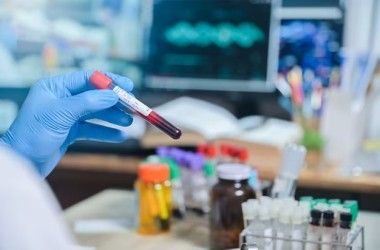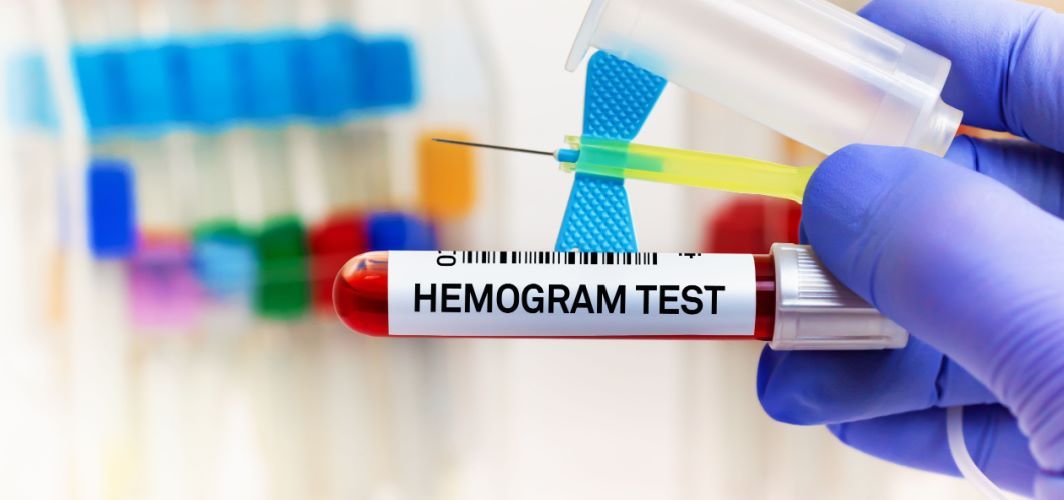General Health
Creatine Kinase MB Test: Purpose, Procedure, Range, and Results
6 min read
By Apollo 24|7, Published on - 14 February 2025
Share this article
0
0 like

Cardiac conditions, such as myocardial infarction (heart attack), often present with symptoms that can overlap with other health issues, making accurate and timely diagnosis critical. To aid in this process, doctors utilise various laboratory tests to assess heart muscle damage. One such test, the Creatine Kinase MB test, plays a vital role in diagnosing and monitoring heart-related conditions, particularly myocardial infarction. This article provides an in-depth explanation of the Creatine Kinase MB test—what it is, why it’s important, how it’s performed, what the results indicate, and other key considerations for patients.
What is the Creatine Kinase MB Test?
The CK-MB test, or Creatine Kinase MB test, is a blood test that measures the level of a specific enzyme called creatine kinase-myocardial band (CK-MB) in the bloodstream. CK-MB is predominantly found in the heart muscle.
This test is commonly used to diagnose heart-related conditions, particularly to assess if there has been damage to the heart muscle during a heart attack. Elevated CK-MB levels can indicate cardiac injury, helping healthcare providers make informed decisions about treatment and patient care. It plays a crucial role in diagnosing acute myocardial infarctions (heart attacks).
What is CK-MB?
CK-MB, or Creatine Kinase-MB, is an enzyme found in the heart muscle. It is one of three forms of creatine kinase (CK) present in the body. The CK-MB test measures the levels of this enzyme in the blood and is used to diagnose heart-related conditions, especially acute myocardial infarction (heart attack). Elevated CK-MB levels indicate heart muscle damage, aiding the assessment of cardiac health.
Purpose: Why Do Doctors Recommend the Creatine Kinase MB Test?
The Creatine Kinase MB test is a diagnostic blood test used to measure the levels of the CK-MB enzyme, which is primarily found in heart muscle cells. This test is crucial in identifying and assessing heart-related conditions, particularly those associated with myocardial damage. Doctors recommend the Creatine Kinase MB test for several important reasons which includes:
1. Diagnosing a Heart Attack (Myocardial Infarction)
One of the primary reasons for ordering a Creatine Kinase MB test is to detect a heart attack. When the heart muscle is damaged due to restricted blood supply, as occurs during a myocardial infarction, CK-MB levels rise in the bloodstream. This enzyme becomes elevated within 3 to 6 hours after heart muscle damage begins, peaks at 12 to 24 hours, and then returns to normal within 48 to 72 hours. This pattern helps physicians confirm whether a heart attack has occurred and provides critical information for timely medical intervention.
2. Assessing Cardiac Injury from Other Conditions
Heart-related conditions such as myocarditis (inflammation of the heart muscle) and pericarditis (inflammation of the heart's outer lining) can also lead to elevated CK-MB levels. The Creatine Kinase MB test helps to distinguish between these conditions and myocardial infarction, guiding appropriate treatment plans. Additionally, the test may be used to evaluate damage caused by cardiac surgery, trauma, or strenuous physical exertion.
3. Monitoring the Progression of a Heart Attack
After confirming a heart attack, doctors may repeat the Creatine Kinase MB test at regular intervals to monitor enzyme levels over time. A decline in CK-MB levels indicates that treatment is working and heart damage is stabilising, whereas persistently high or rising levels may suggest ongoing heart muscle damage or complications. This helps doctors adjust treatments as needed for better patient outcomes.
4. Detecting Recurrent Heart Attacks
Patients who have previously suffered a heart attack are at risk of experiencing another one. The Creatine Kinase MB test is useful in distinguishing between an initial heart attack and a recurrent myocardial infarction, especially when symptoms reappear within a short time frame. Since CK-MB levels return to normal within 2 to 3 days, a fresh rise in levels suggests a new cardiac event rather than residual enzyme elevation from a prior heart attack.
Procedure of the Creatine Kinase MB Test
The Creatine Kinase MB test procedure involves a straightforward process of sample collection and laboratory analysis to provide accurate results for diagnosing and monitoring cardiac conditions.
1. Preparation
No specific preparation is required before undergoing the Creatine Kinase MB test. However, patients should inform their healthcare provider about any medications, supplements, or herbal remedies they are currently taking, as certain substances may influence the test results.
2. Blood Sample Collection
A trained healthcare professional or a phlebotomist will carry out the blood sample collection process as follows:
- The skin at the intended puncture site, typically on the inner elbow or forearm, will be cleansed with an antiseptic solution to reduce the risk of infection.
- A tourniquet (a tight band) will be wrapped around the upper arm to restrict blood flow temporarily, causing the veins to become more prominent and easier to access.
- A sterile needle will then be inserted into a vein, and a small amount of blood will be drawn into a collection tube.
- Once an adequate sample has been obtained, the needle will be carefully removed, and gentle pressure will be applied to the puncture site with a sterile cotton pad or gauze to prevent excessive bleeding. A small adhesive bandage may be placed over the area.
- The collected blood sample will be properly labelled and transported to a laboratory for analysis.
3. Laboratory Analysis
- At the laboratory, the blood sample will be analysed to determine the levels of CK-MB, a biomarker for heart muscle damage. The testing process may involve advanced techniques such as:
- Enzyme-Linked Immunosorbent Assay (ELISA): A biochemical method that detects and quantifies specific proteins, including CK-MB, through antigen-antibody interactions.
- Immunofluorescence Assay: A technique that utilises fluorescent dyes to identify and measure CK-MB levels in the blood sample with high sensitivity and accuracy.
4. Result Interpretation
You will typically receive your test results on the same day, depending on the lab’s processing time. Your healthcare provider will review the results, discuss the findings with you, and explain what the results mean for your health.
Understanding the Range and Results of the Creatine Kinase MB Test
Understanding the Range and Results of the Creatine Kinase MB Test
Comparing CK-MB with the Troponin Test
While the Creatine Kinase MB test is a valuable tool in detecting cardiac injury, it is often used alongside the troponin test. Troponin is a more specific marker for heart attacks and remains elevated longer than CK-MB, making it the preferred choice for diagnosing myocardial infarction. However, CK-MB is still useful for detecting reinfarctions and assessing early heart muscle damage.
Conclusion
The Creatine Kinase MB test is a crucial diagnostic tool for assessing heart health. It helps identify heart attacks, monitor cardiac damage, and guide treatment decisions. While newer markers like troponin have largely replaced CK-MB in primary diagnosis, it remains valuable for specific clinical situations.
If you experience symptoms like chest pain, shortness of breath, or fatigue, consult your doctor immediately. Early detection and treatment can significantly improve outcomes in heart-related conditions. Don't ignore the signs of heart trouble—schedule your CK-MB test today and take charge of your heart health!
General Health
Leave Comment
Recommended for you

General Health
When To Get A Complete Hemogram Test?
Learn about hemogram tests and their importance in providing a complete and comprehensive analysis of your bloodwork and blood composition. Understand when to take these tests, the difference between hemogram and other CBC tests and how to interpret hemogram test results.

General Health
Morbid Obesity: What You Need To Know
In a country like India, where a fat person is considered healthy, it is likely to see more cases of morbid obesity. It is a condition where the person is 30-40 kg heavier than their ideal weight. As much as diet is believed to be the primary factor, the major causes are genetic, hormonal, and physical. Hence, changing your lifestyle and maintaining the ideal weight for a healthy life is essential.

General Health
A Complete Guide To Constipation: Causes, Home Remedies, and Red Flags
Constipation is a common digestive issue affecting millions worldwide. If not treated in time, it can affect regular routines and quality of life. Read on to know the common causes, home remedies, red flags and more.
Subscribe
Sign up for our free Health Library Daily Newsletter
Get doctor-approved health tips, news, and more.
Visual Stories

Plant-based Foods That Are a Great Source of Iron
Tap to continue exploring
Recommended for you

General Health
When To Get A Complete Hemogram Test?
Learn about hemogram tests and their importance in providing a complete and comprehensive analysis of your bloodwork and blood composition. Understand when to take these tests, the difference between hemogram and other CBC tests and how to interpret hemogram test results.

General Health
Morbid Obesity: What You Need To Know
In a country like India, where a fat person is considered healthy, it is likely to see more cases of morbid obesity. It is a condition where the person is 30-40 kg heavier than their ideal weight. As much as diet is believed to be the primary factor, the major causes are genetic, hormonal, and physical. Hence, changing your lifestyle and maintaining the ideal weight for a healthy life is essential.

General Health
A Complete Guide To Constipation: Causes, Home Remedies, and Red Flags
Constipation is a common digestive issue affecting millions worldwide. If not treated in time, it can affect regular routines and quality of life. Read on to know the common causes, home remedies, red flags and more.